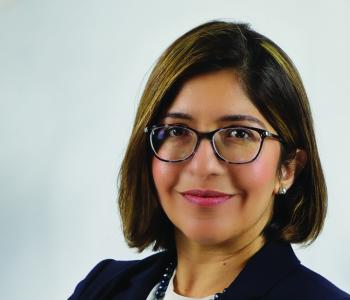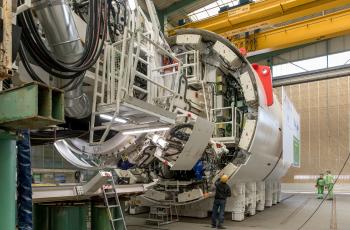Living Classrooms of the National Capital Region Hosts Anacostia River Clean-Up at RFK Stadium
Living Classrooms of the National Capital Region announces that nearly 150 youth and adults will participate in the Anacostia River Fall Clean-Up along the shoreline of the Anacostia River on Friday, November 5, 2010. The clean-up and educational activities will be held from 10:00 to 11:30 a.m. followed by an awards ceremony and picnic lunch during which the organization will present its "Living Legend Award". This award is presented to an agency/elected official, individual and corporation in recognition of their outstanding work on improving the quality of the Anacostia River watershed and community outreach and engagement.
Living Legend Award Winners
Environmental Protection Agency (EPA), Chuck Fox, Senior Advisor to the Administrator-Agency/Elected Official Winner
o Establish the Trash Total Maximum Daily Load (TMDL) EPA recently approved a new TMDL for trash in the Anacostia River, making the Anacostia the first interstate river in the nation with an enforceable trash limit.
o Issue the D.C. MS4 Draft Permit EPA released a draft D.C. MS4 permit that establishes strong standards for green technology practices, such as green roofs, tree plantings, and treatment of impervious surfaces to maximize water retention and reuse. The draft permit also includes limits on runoff from new development and redevelopment and requires a retrofitting program for existing discharges.
o Launch the Green Streets-Green Jobs Initiative EPA is supporting the development of grassroots green street projects by providing support for education, training, planning and design of green street projects for municipalities in the Anacostia watershed. This makes the Anacostia the first pilot area for evaluation of a Chesapeake Bay-wide approach.
o Support the Anacostia Watershed Restoration Partnership EPA has supported the Anacostia Watershed Restoration Partnership, an unprecedented regional and multijurisdictional cooperative effort, and the development of a comprehensive restoration plan to turn around the health of the river and its watershed.
Tom Dernoga, Prince Georges Vice Chairman and Councilmember - Individual Winner
o Councilman Dernoga ensured that every development in his district, much of which is in the Anacostia watershed, was designed to mitigate as much stormwater run-off as reasonably possible.
o Councilman Dernoga worked very closely with non-profit watershed organizations and citizens groups in assisting with enforcement of stormwater regulations, providing a forum for collaboration between these entities for best practices, helping develop strategies for a cleaner Anacostia River.
o Councilman Dernoga, through several advocacy groups, wrote strong stormwater legislation that far exceeds state standards, and calls for environmental site design with newly developed and redeveloping projects which requires mitigation of most on-site stormwater run-off.
DC Water, George Hawkins, General Manager-Corporate Winner
o DC Water is implementing a long term control plan, called the Clean Rivers Project, to control Combined Sewer Overflows (CSOs) to local waterways. The Anacostia River CSO control project will help reduce CSOs from 82 to 2 overflow events per year by removing more than 98 percent of the CSOs from the river.
o DC Water is incorporating low impact development design and techniques to minimize stormwater runoff and protect water quality.
o DC Water maintains an aggressive Floatable Debris Removal Program, capturing and removing approximately 400 tons of floating debris and trash a year.
o DC Water has invested in a year-round catch basin cleaning program to prevent litter and debris from reaching and polluting our local waterways.
o DC Water actively educates and engages the public about the health of the Anacostia River to raise awareness about the importance of protecting and restoring our waterways.
The clean-up, hosted by Living Classrooms of the National Capital Region, the Anacostia Riverkeeper, the Anacostia Watershed Society and the American Chemistry Council, will begin at 9:00 a.m. near Kingman Island on Parking Lot 6 at RFK Stadium in Northeast, DC. The purpose of the event will be to educate youth about the enormous impact that debris has on the health of the Anacostia River, which receives more than 20,000 tons of trash annually. Participants will include students and teachers from area schools, elected officials, representatives from federal and state agencies, corporations, non-profit organizations and the events sponsoring corporations. We are pleased to partner with Living Classrooms in helping to clean up the Anacostia River and to work with the community, especially our young people, to help protect the environment for future generations said Keith Christman, Senior Director, Market Advocacy for the American Chemistry Council.
In addition to the American Chemistry Council and Living Classsrooms, the Anacostia River Keeper and Anacostia Watershed Society are supporting this effort to benefit the continued outreach and education that programs provide to Washington, DC, Virginia and Maryland youth and young adults. This event will provide youth with hands-on activities that reflect the Living Classrooms approach toward learning, while recognizing past efforts on behalf of the Anacostia River. We need to build strategic partnerships on the Anacostia River and recognize those who have made a commitment to help restore, protect and conserve our Capitals river said Executive Director, John Dillow. It is essential for Living Classrooms with our growing presence on the Anacostia and Potomac rivers to provide more academic enrichment and environmental education programs for youth in the Washington area.
Since May 2001, Living Classrooms, in partnership with many other non-profits, serves more than 18,000 students annually in the national capital region providing river-based education, in-classroom education, after school programs, professional teacher and workforce development.






